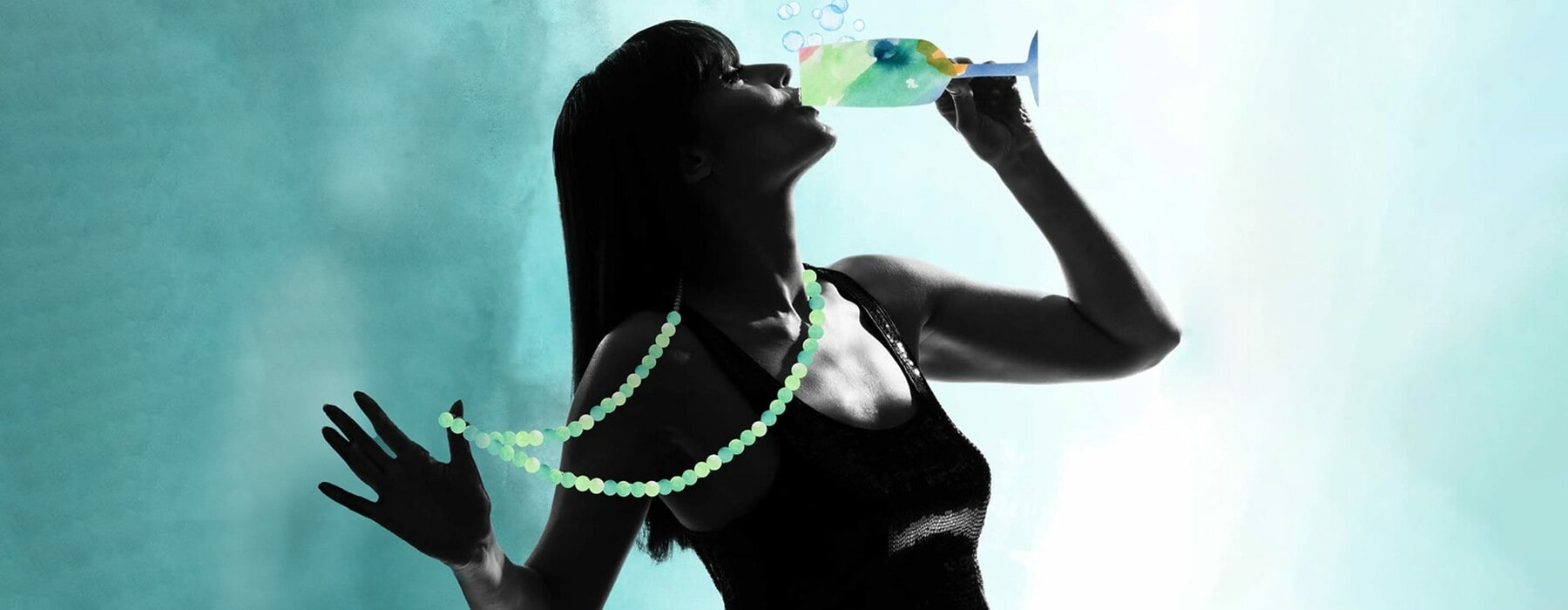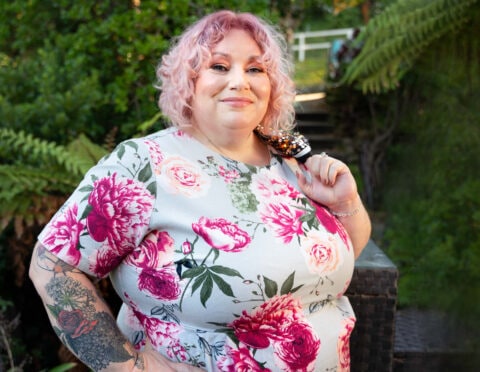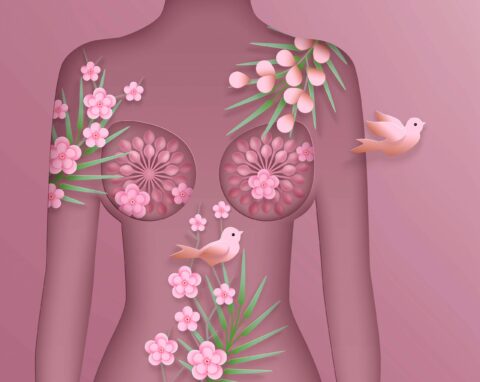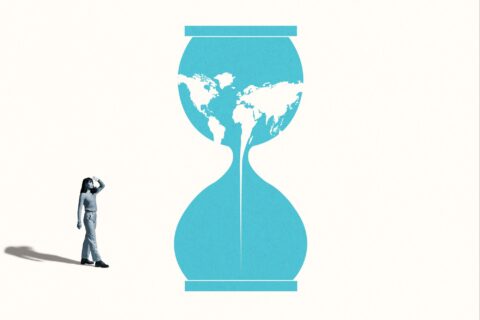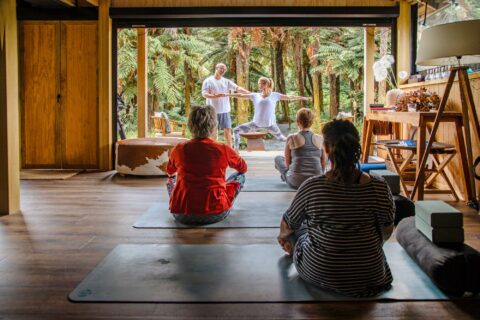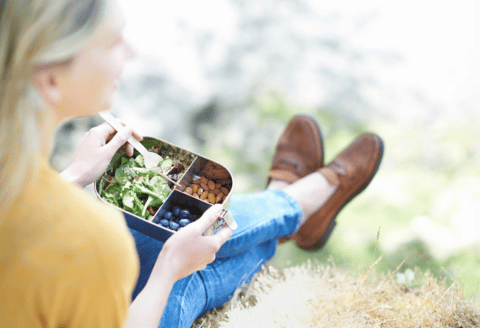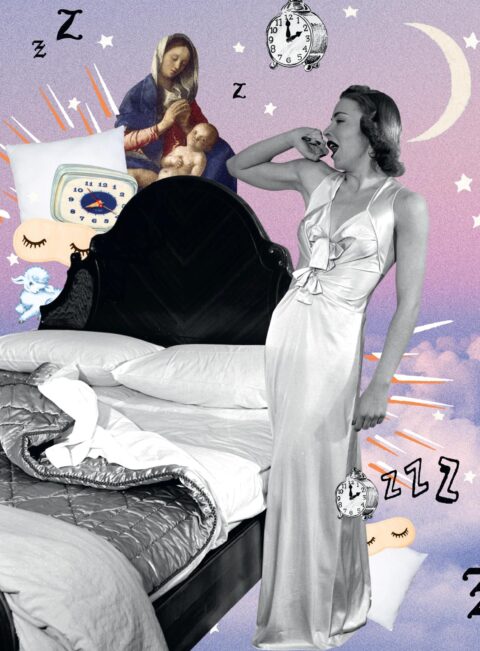It’s fashionable to cut sugar or carbs, but friends will look sideways at you if you pass on the wine. However, as Amy Prebble finds, the health benefits of going easy on the booze are huge, and you’ll probably look and feel better for it too.
There are countless health headlines about the benefits of cutting out sugar. Or caffeine or gluten or carbs. But there’s one thing 79 percent of Kiwi adults consume, which is linked to nine different types of cancer, strokes and heart disease, yet it generally slips under the radar when it comes to elimination diets – alcohol.
New Zealand households spent, on average, the same on alcohol as on fruit and vegetables in 2018 – more than $4 billion per year. This is despite Ministry of Health recommendations that men drink no more than three standard drinks a day and no more than 15 standard drinks a week. For women, it’s two standard drinks per day and no more than 10 standard drinks a week. Everyone needs at least two alcohol-free days every week.
If you’re drinking more than the recommendations (and a standard drink is a lot smaller than you think), you’re definitely not alone. A 2017 survey showed that 25 percent of Kiwis who consume alcohol are classed as “hazardous drinkers”. And it’s not just young people drinking to dangerous levels, with one in four 45 to 54-year-olds who drink also considered to be in the hazardous category.
What’s also not so well known is that alcohol poses some extra dangers for women, who produce less of the enzyme that breaks down alcohol than men. Women are more prone to alcohol damage of the liver and heart, and those extra wines also increase your risk of breast cancer. Breast Cancer Foundation NZ says even one drink a day will slightly increase your lifetime risk of developing breast cancer, and the risk rises the more you drink.
Something had to change
Cuisine editor Kelli Brett had known for around five years that something had to give with her drinking.
“I didn’t get to the point where I had to go and have professional help, but I did have a doctor look at me and say, ‘You do realise that you’ve got to make some lifestyle changes here, don’t you? You’re not going to get away with this forever. Nobody does.’”
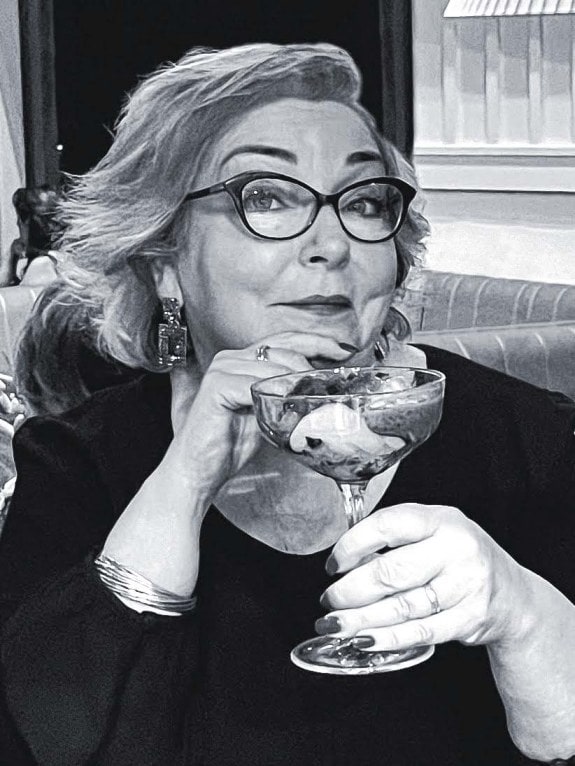
Like many women who find themselves drinking more than they should, Kelli has a high-pressure job.
“You wouldn’t think running Cuisine magazine would be like War and Peace but it is,” she says, with a laugh. “We’re a very small team and it’s a big gig.”
Of course, as part of her job, Kelli is regularly invited to 12-course degustations, sitting in prime position next to the winemaker, with a different wine pairing for every course, so it can be difficult to abstain.
“I just got to a point where you’re out at lunch and you’re having a couple of wines and then you have a wine while you’re cooking dinner, and then you have another wine or two while you’re eating dinner, then you have another one afterwards and before you realise it, that’s a bottle every night,” she says.
“I suppose you’d call it being a functioning alcoholic because I wasn’t getting hangovers or anything the next morning, but I was just dragging myself through the day, so tired. Just exhausted every day.”
Kelli admits she has no intention of becoming a teetotaller. “I eat and drink for a living! And I just absolutely love wine. In fact, my French ancestors started the first vineyards in Victoria in Australia, so I feel like I have a bit of an excuse. Drinking has always been a big part of the family.
“When my dad got home from work, Mum was there waiting for him and they’d sit down and have a beer. You hadn’t knocked off until you had a drink. I’ve carried that tradition on. Of course, the knock-off drink turns into another one and then another one and it can get a bit ridiculous.”
A strategy that worked
So Kelli started cutting back instead. She spent a few days at a retreat to kick-start a lower booze lifestyle. She then set aside weeks when she wouldn’t travel for the magazine, eliminating the need for a work tipple. She also has very strict rules about no drinking at home – despite a well-stocked cellar. She’s feeling so much better, and she’s realised there’s just no need to be going overboard on booze at home.
“I think I’ve lost about eight kilos. The clothes are a lot looser. My husband is over the moon because I’ve stopped snoring. It’s been really good for our marriage because he’s getting more sleep as well. Plus, my skin hasn’t looked this good in ages.”
She’s also noticed much higher energy levels, which in turn has helped her to get in a bit of exercise (which she hates). She has, however, noticed a puzzling attitude when you cut out booze – unlike the congratulations that flow for eschewing sugar or cigarettes. “It’s like, ‘What? You’re not drinking! Are you on antibiotics? Is everything all right?’” she says, chuckling.
Kelli is aware she’s lucky to have been able to choose to cut back on alcohol, rather than being forced to cut it out completely due to a rock-bottom experience.
Holly Whitaker, author of Quit Like a Woman, would describe Kelli as “an early exiter” – someone who recognises they are drinking too much and does something about it before they become addicted to alcohol, which, despite its comfortable place in Western society, it is an extremely addictive substance.
Delicious alternatives
For Kelli, doing some research on alcohol, and occasionally using non-alcoholic spirits and wines to help get past the urge, have helped when she’s really craving booze.
“I was going out to lunches and if they had a nice Seedlip cocktail or something, as opposed to just drinking flat water, that helped because you had something that still had the lovely botanicals in it. Just having a glass of water gets pretty bloody boring after the first two. I like sparkling water though, I’m a real Antipodes girl. Giesen do a zero-alcohol range, which I tried just recently, and I have one or two of those with a bit of sparkling water and then I’m okay.”
Even the return to level 4 lockdown didn’t throw Kelli off course. She managed to stick to her rule of no drinking at home other than one Friday night when she did have a glass and that turned into three during a lockdown dinner party.
“I’m finding my stress and anxiety levels are actually less without the booze, perhaps not at night on the couch, but definitely during the day when I am needing to be calm and handle the curve balls that this situation constantly throws at us. I don’t sit on the couch late into the evening any more, as I can’t reach for that comforting glass of wine. Instead, I go to bed a bit earlier and have a herbal tea in bed and catch up on some reading. Yikes! I sound like I’m getting old… but the pay-off is I’m feeling younger than ever!”
Low and no-alcohol tipples take off
Kelli’s clearly not the only one looking to cut back her alcohol intake. Low-alcohol and no-alcohol alternatives are fast-growing categories in the drinks aisle.
In 2014 the New Zealand wine industry partnered with the Ministry for Primary Industries to undertake its largest research programme ever, focused on understanding how best to produce and market lighter-in- alcohol wines. The seven-year Lighter Wines initiative aimed to make New Zealand the “go to” country for high quality, lighter wines. The result is that there are now at least 15 local winemakers producing low or no-alcohol wines here, with new brands appearing all the time in response to strong demand from a wide range of people.
When Giesen Wines first introduced their zero-alcohol sauvignon blanc, they got a surprise. Initially, they expected five types of consumers might be interested in their alcohol-free offering. “The niche consumer groups included people doing work lunches, sober drivers, health conscious, the elderly, or pregnant or breastfeeding mums,” says marketing manager Angela Flynn. “But what ended up happening when we first launched was that it was the regular wine drinker who was also after a zero percent wine for certain different occasions within their week or within their lifestyle. That kind of blew our minds a little bit.”
As more of us become “sober curious”, we can expect to see more and better options appearing, not just in wine but also spirits alternatives, such as Seedlip and AF, and naturally alcohol-free alternatives including kombucha, kefir and other sodas.

